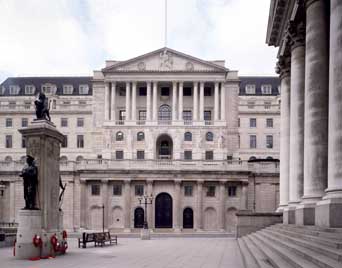The Office for National Statistics (ONS) confirmed that the Consumer Prices Index (CPI) rose by 4.6 per cent in the 12 months to October 2023, down from 6.7 per cent in September, and the lowest rate in two years.
Industry experts suggested that this fall in inflation was “sorely needed”, with PensionBee director of public affairs, Becky O’Connor, suggesting that it could mark “mark the beginning of the end of the cost-of-living crisis, although prices are still high and the painful effects of this difficult period will continue to be felt for some time".
“For those trying to preserve the long-term value of their life savings, including their pension, returning to lower inflation is absolutely vital,” she continued.
“Retirees have been struggling to make their pensions last in the face of the recent bout of ultra-high inflation; while workers trying to boost their future pension pot have faced an uphill battle to maintain the real future value of their savings.
"A return to more normal economic conditions will be a boost to financial resilience and security and may enable people to start reprioritising planning, rather than just getting by.”
However, Aegon warned that the fall in inflation could increase the pressure on the government’s state pension triple lock decision, explaining that, if honoured in full, state pensioners could potentially receive an increase of double the ruling rate of inflation next April.
Aegon pensions director, Steven Cameron, explained: “The official formula would grant an 8.5 per cent increase, based on year-on-year earnings growth for the May to July period. This is further above inflation than we’ve seen in recent months.
"With rumours of the Chancellor having more fiscal headroom than anticipated, the government may decide to grant the full 8.5 per cent, providing another bumper increase after this April’s highest ever 10.1 per cent. But this is paid for out of the National Insurance of today’s workers and raises real questions around intergenerational fairness.
“There have been reports that the government is considering adjusting the earnings growth figure downwards to take out the impact of recent one-off public sector bonuses which have created a ‘distortion’."
However, Cameron warned that while trimming it back to say 7.8 per cent would save the government hundreds of millions, "it risks the wrath of the pensioner population ahead of an almost certain General Election next year".
“With the government already having more than met its target of cutting inflation by half by the end of the year, the current 4.6 per cent remains significantly above the Bank of England’s 2 per cent target, so the headline rate may fall even further as we head into the early months of 2024," he continued.
"This means there’s a real chance that a state pension increase of 8.5 per cent could be more than double the ruling rate of inflation come next April. That’s unsustainable."
Given this, Cameron argued that whatever the decision for next April, volatile price inflation and earnings growth add to growing concerns that the triple lock in its current form is unsustainable longer term.
"Prior to the General Election, we’re calling on the main parties to make clear their proposals to make it sustainable, reliable, and intergenerationally fair," he added.
Latest News
-
OBR analysis reveals potential impact of salary sacrifice changes
-
Strong funding levels continue as endgame landscape reshaped by innovation
-
Harwich Haven Authority Pension Fund finalises £45m buy-in with Royal London
-
GAD publishes LGPS gender pension gap reporting guidance
-
DB scheme funding levels continue to improve heading into 2026
-
News in brief - 6 February 2026
Private markets – a growing presence within UK DC
Laura Blows discusses the role of private market investment within DC schemes with Aviva Director of Investments, Maiyuresh Rajah
The DB pension landscape
Pensions Age speaks to BlackRock managing director and head of its DB relationship management team, Andrew Reid, about the DB pensions landscape
Podcast: From pension pot to flexible income for life

Podcast: Who matters most in pensions?

In the latest Pensions Age podcast, Francesca Fabrizi speaks to Capita Pension Solutions global practice leader & chief revenue officer, Stuart Heatley, about who matters most in pensions and how to best meet their needs
© 2019 Perspective Publishing Privacy & Cookies











Recent Stories